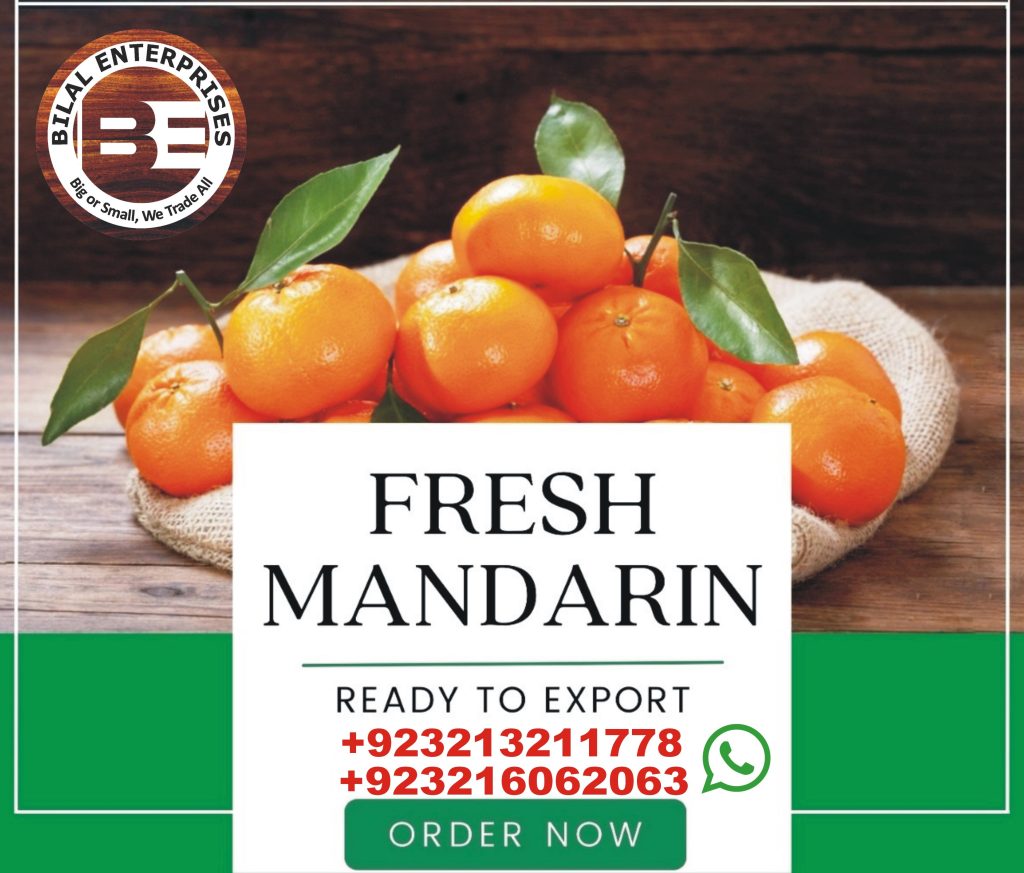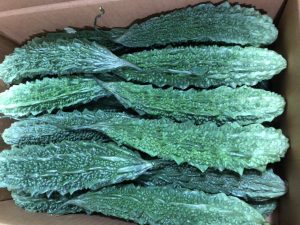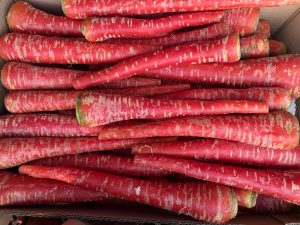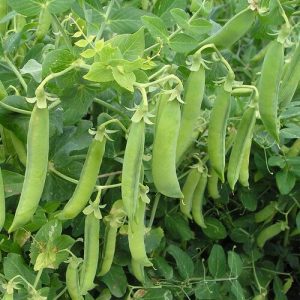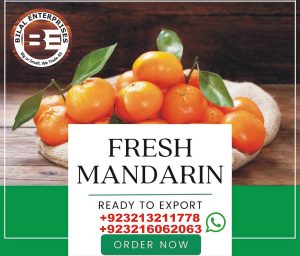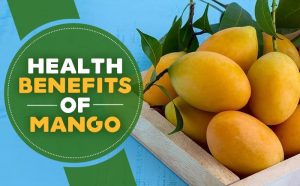Table of Contents
ToggleBest Quality Kinnow Ready to Export
Pakistan is one of the leading producers of Kinnow mandarins in the world. Kinnow is a popular citrus fruit that is a hybrid of two citrus varieties – King (Citrus nobilis) and Willow Leaf (Citrus deliciosa). It is known for its sweet and tangy flavor and high juice content. Pakistan’s citrus industry, including Kinnow mandarin production, has been steadily growing, and the country exports Kinnow mandarins to various countries around the world.
When it comes to exporting Kinnow mandarins from Pakistan, there are several steps and regulations that exporters need to follow:
1. Quality Standards: Kinnow mandarins exported from Pakistan must meet the quality standards set by the importing country. These standards usually include criteria related to size, color, maturity, and absence of pests and diseases.
2. Packaging: Kinnow mandarins are typically packed in cartons or crates. Proper packaging is essential to prevent damage during transportation. Packaging requirements may vary based on the destination country.
3. Phytosanitary Certificates: Exporters need to obtain phytosanitary certificates from the relevant authorities. These certificates confirm that the exported fruits are free from pests and diseases, ensuring that they meet the import regulations of the destination country.
4.Export Documentation: Various export documents, including invoices, certificates of origin, and shipping documents, need to be prepared accurately to facilitate the smooth export process.
5.Shipping and Transportation: Kinnow mandarins are usually transported via sea freight. Exporters need to work with reliable shipping companies to ensure timely and safe transportation of the fruits to the destination country.
6.Market Research: Exporters should conduct market research to identify potential buyers in the target countries. Building relationships with importers and distributors can facilitate the export process.
7. Customs and Tariffs: Exporters should be aware of the customs regulations and tariffs applicable in the destination country. This knowledge is essential for pricing the products competitively and avoiding any legal issues.
It’s important to note that regulations and procedures may change over time, so exporters should always consult with relevant authorities or export promotion agencies in Pakistan for the most up-to-date information on exporting Kinnow mandarins. Additionally, working with experienced export professionals or agencies can greatly assist in navigating the complexities of international trade.
Harvesting Kinnow Mandarins
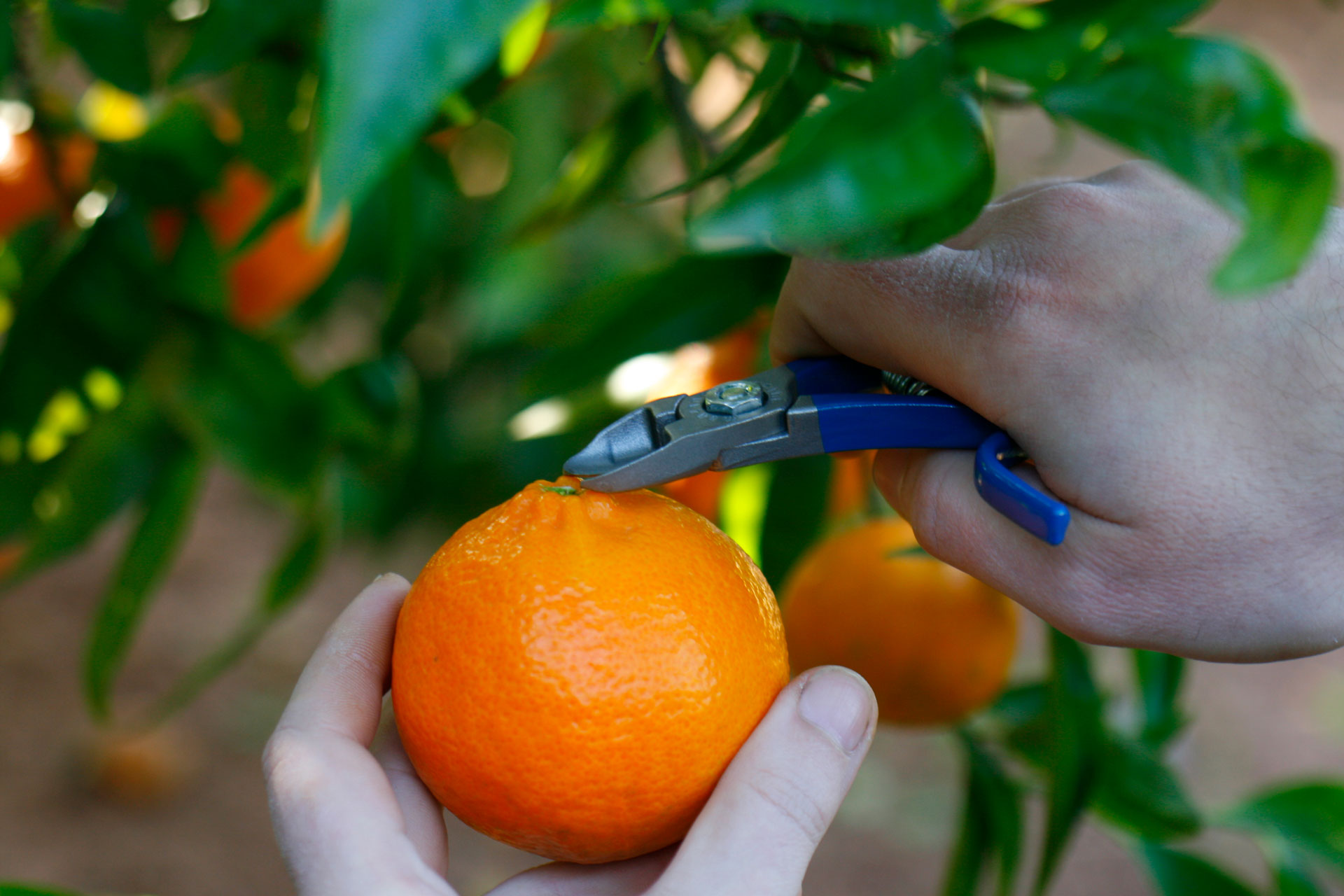
Harvesting Kinnow mandarins, like other citrus fruits, requires careful timing and attention to detail to ensure optimal fruit quality. Here are the general steps involved in harvesting Kinnow mandarins:
1. Timing:
Harvesting Kinnow mandarins is typically done in winter, usually from December to February, when the fruit is ripe and reaches its peak flavor. However, the exact timing can vary depending on the climate and specific variety of Kinnow being cultivated.
2. Visual Inspection:
Experienced farmers and orchard workers visually inspect the fruit to determine its ripeness. Ripe Kinnow mandarins are bright orange in color and should have a slightly glossy appearance. They should be firm yet slightly soft to the touch. Additionally, the characteristic aroma of ripe citrus indicates their readiness for harvest.
3.Cutting Techniques:
Special care is taken while cutting the fruit to prevent damage. Orchard workers usually use pruning shears or sharp knives to cut the fruit from the tree. It’s essential to leave a small piece of stem attached to the fruit (known as a stem or “button”) to prolong its shelf life and prevent fungal infections.
4. Handling:
Kinnow mandarins are delicate fruits, so they should be handled with care to avoid bruising and damage. Workers gently place the harvested fruits into containers or baskets, ensuring they are not stacked too high to prevent crushing.
5. Post-Harvest Treatment:
- Sorting by Size: Kinnow mandarins are sorted into different size categories. Common size categories include extra-large, large, medium, and small. This sorting helps in packaging fruits of similar sizes together, providing uniformity in each package.
- Color Grading: Fruits are graded based on their color. Ripe Kinnow mandarins are bright orange in color. Fruits with consistent, vibrant orange hues are considered higher quality and are sorted separately from fruits with blemishes or uneven coloring.
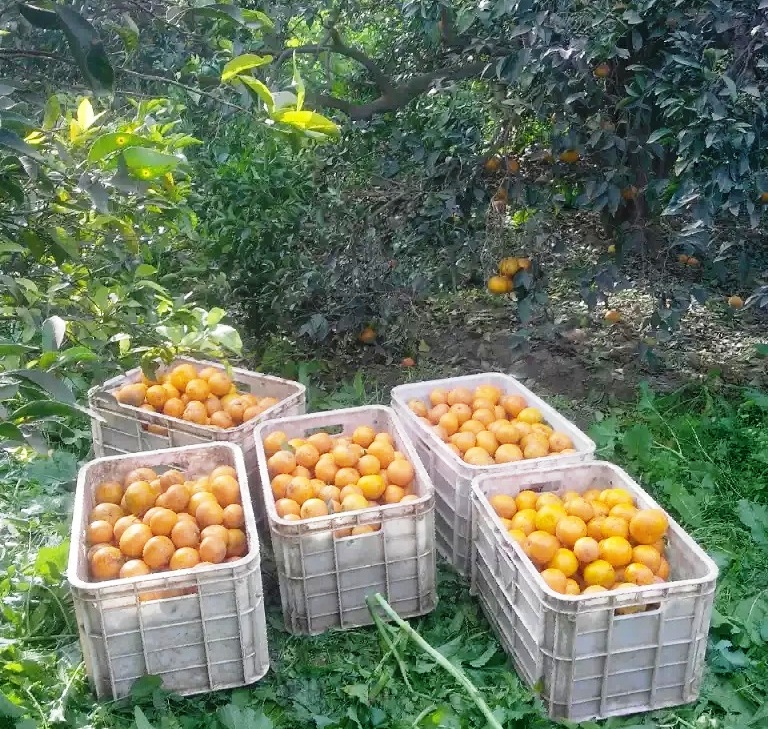
6. Orchard to Processing Plant:
Once stored, Kinnow mandarins are transported to processing plat for further maintain the fruit’s quality.
It’s important for farmers and orchard managers to ensure that the harvesting process is carried out efficiently and swiftly to deliver fresh, high-quality Kinnow mandarins to consumers and markets around the world.
Washing and waxing are essential post-harvest treatments for Kinnow mandarins. These processes help improve the fruit’s appearance, remove dirt and residues, enhance shelf life, and protect the fruit during transportation. Here’s how washing and waxing are typically done:
Kinnow Washing
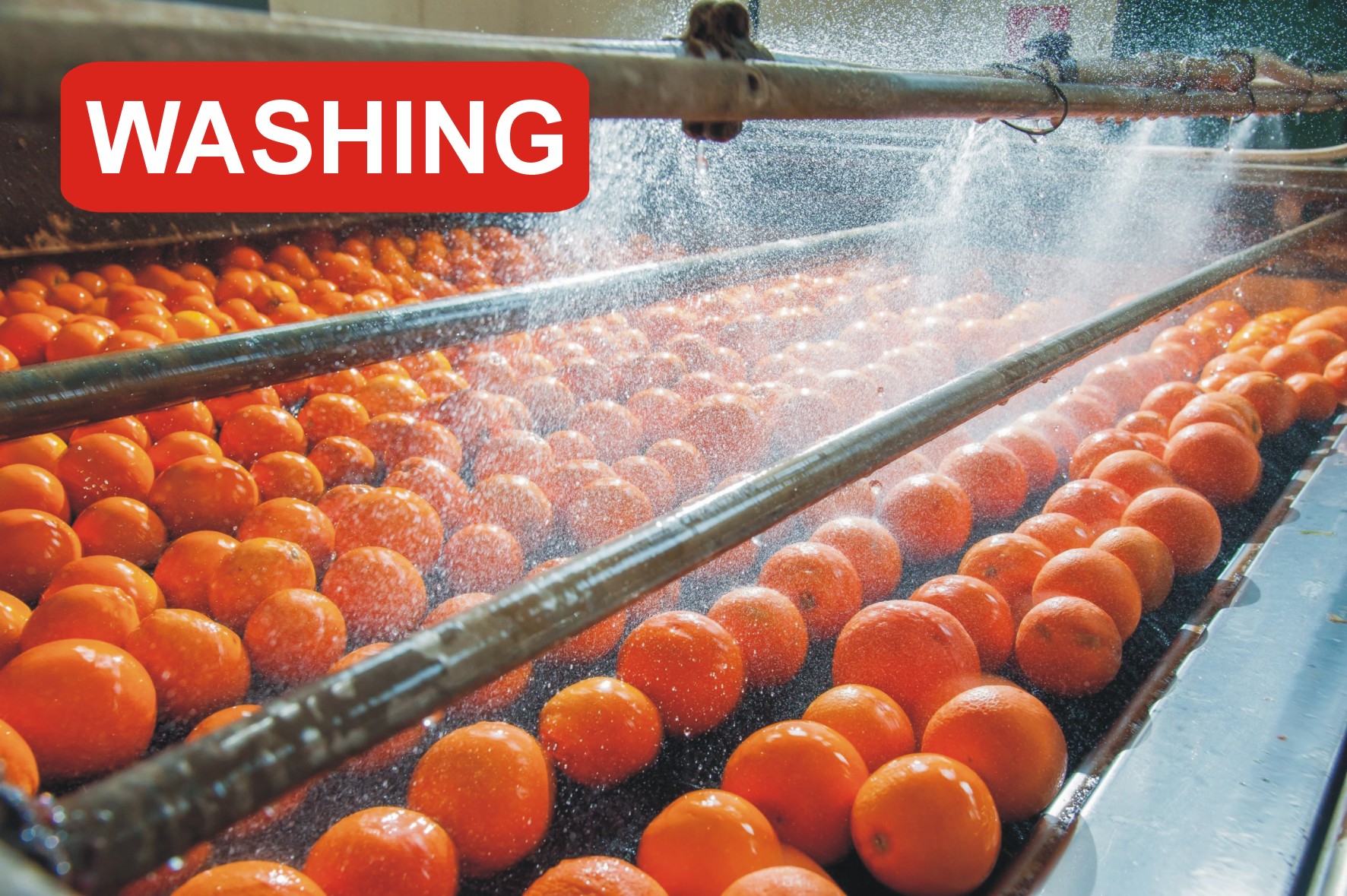
1. Washing:
1. Water Bath: Kinnow mandarins are often washed in a water bath or conveyor system to remove dirt, dust, and residues. The water bath may contain mild disinfectants to reduce the risk of fungal and bacterial contamination.
2. Brushing: In some processing facilities, the fruits go through rotating brushes or soft bristle rollers. This mechanical action helps remove stubborn dirt and residues from the fruit’s surface.
3. Rinsing: After washing and brushing, the fruits are thoroughly rinsed with clean water to remove any remaining cleaning agents or residues from the surface.
Kinnow Waxing
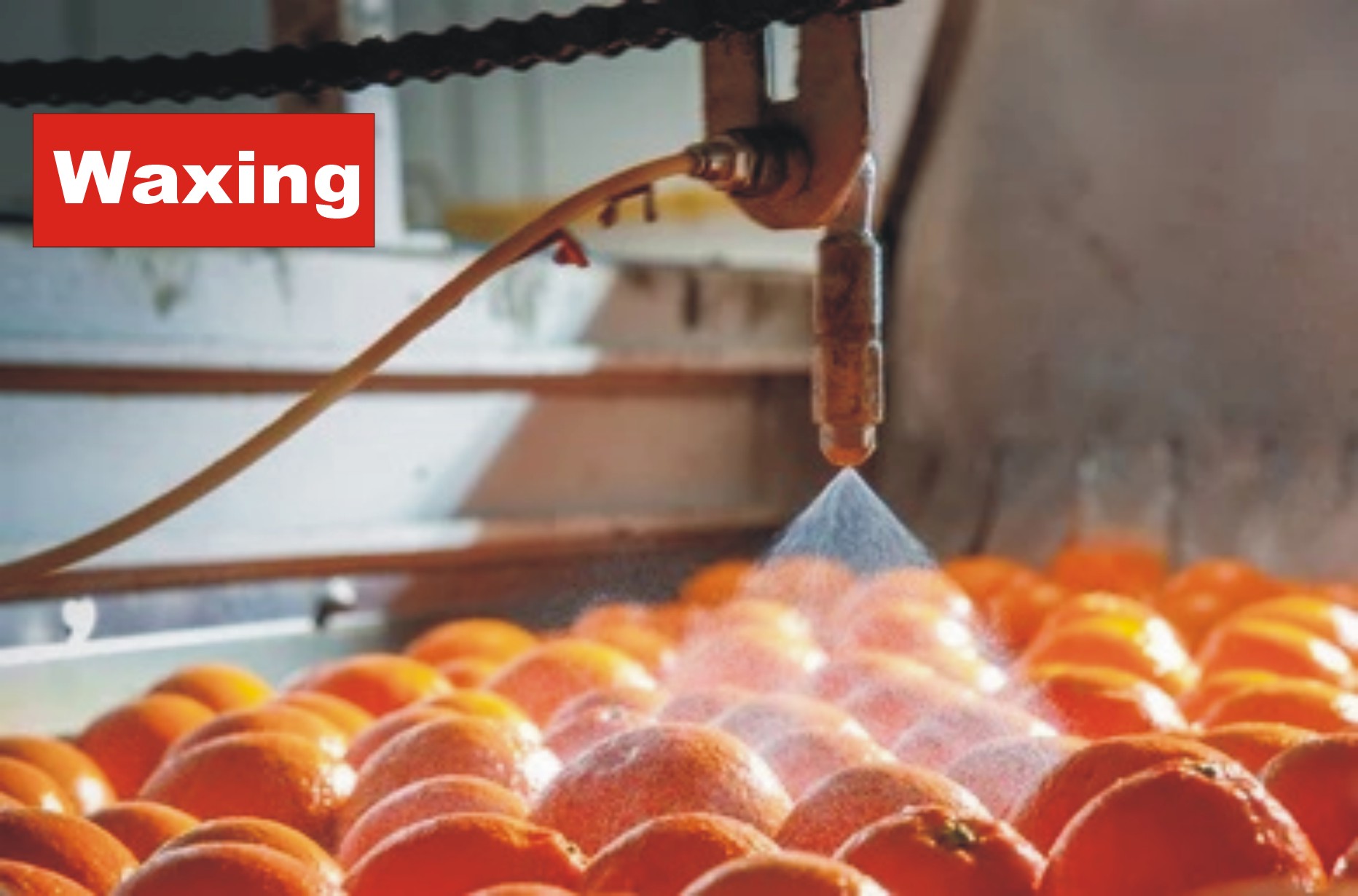
2. Waxing:
1. Drying: After washing, the Kinnow mandarins are air-dried or passed through a drying tunnel to remove excess moisture from the surface. Proper drying is essential for effective wax adhesion.
2. Wax Application: Food-grade waxes, often based on natural ingredients like carnauba wax, are applied to the surface of the dried fruits. This wax provides a protective coating, enhances the fruit’s appearance, and helps maintain moisture levels.
3. Buffing or Polishing: In some cases, the waxed fruits are passed through brushes or rollers that gently buff and polish the waxed surface, giving the fruits a shiny appearance.
3. Quality Control:
Quality control personnel inspect the waxed Kinnow mandarins to ensure that the wax coating is uniform, without any irregularities. They also check for any damaged or unacceptably blemished fruits that might have passed through the process.
KINNOW GRADING
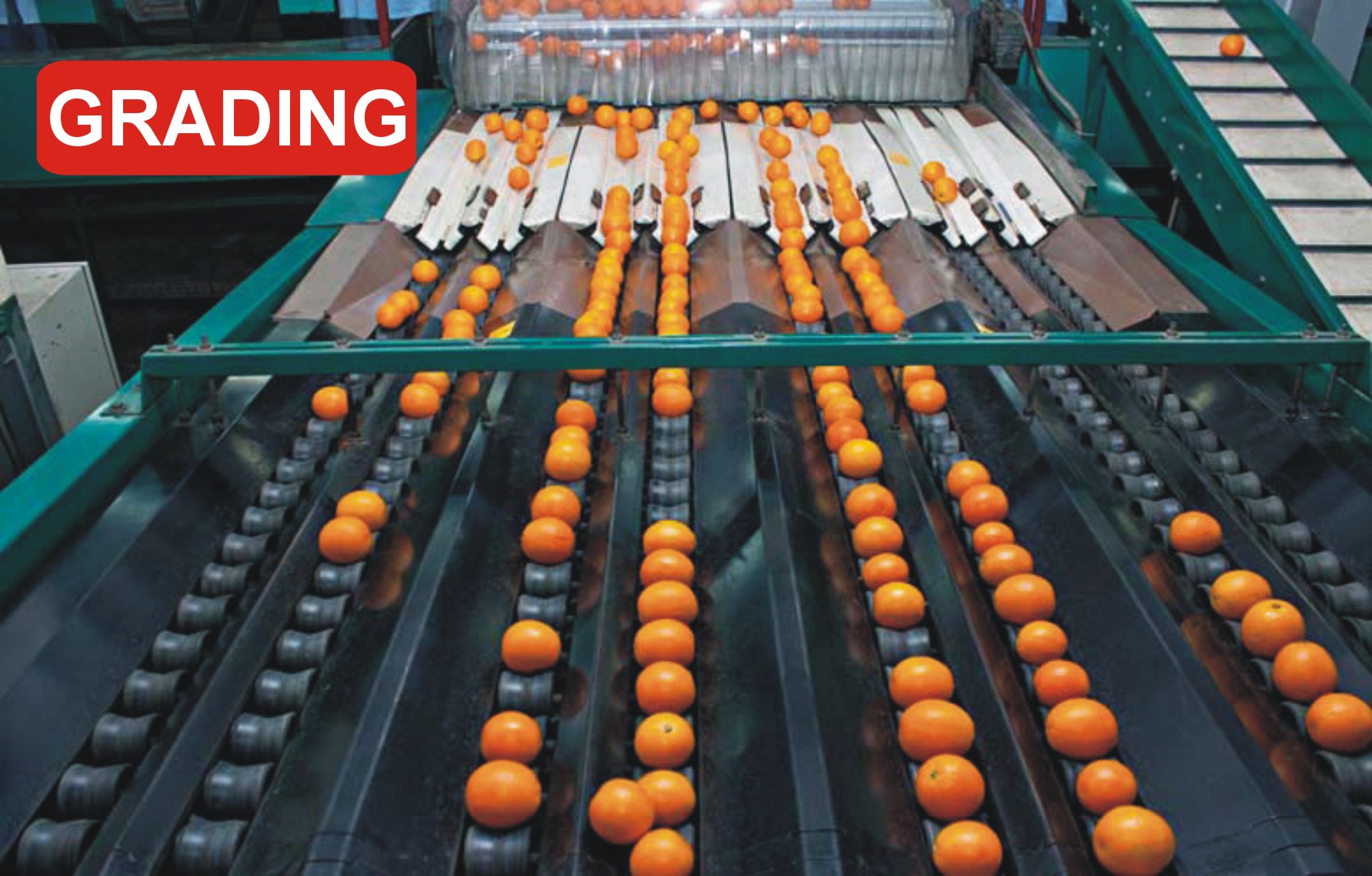
Grading is an essential step in the post-harvest process of Kinnow mandarins, as it ensures that the fruits meet certain quality standards for market sale. Grading involves sorting the Kinnow mandarins based on various characteristics such as size, color, shape, and overall quality. Here are the typical steps involved in Kinnow grading:
1. Sorting by Size: Kinnow mandarins are sorted into different size categories. Common size categories include extra-large, large, medium, and small. This sorting helps in packaging fruits of similar sizes together, providing uniformity in each package.
2. Color Grading: Fruits are graded based on their color. Ripe Kinnow mandarins are bright orange in color. Fruits with consistent, vibrant orange hues are considered higher quality and are sorted separately from fruits with blemishes or uneven coloring.
3. Shape and Uniformity: Kinnow mandarins should have a uniform shape, free from deformities or irregularities. Fruits that are misshapen or damaged are typically separated during the grading process.
4. Quality Inspection:
Graders inspect each fruit for quality. This includes checking for blemishes, bruises, cuts, and other defects. Only fruits that meet the desired quality standards are selected for packaging.
5. Removing Defective Fruits:
Any fruits that do not meet the quality criteria are removed from the grading line. These defective fruits may be used for other purposes, such as processing or juicing.
Grading ensures that consumers receive high-quality Kinnow mandarins while also facilitating exports by meeting the quality standards set by importing countries. It’s typically carried out in specialized facilities by experienced workers who are trained to identify and sort fruits based on the specified criteria. Proper grading practices are essential for the commercial success of Kinnow mandarin sales both domestically and internationally.
Kinnow Packaging
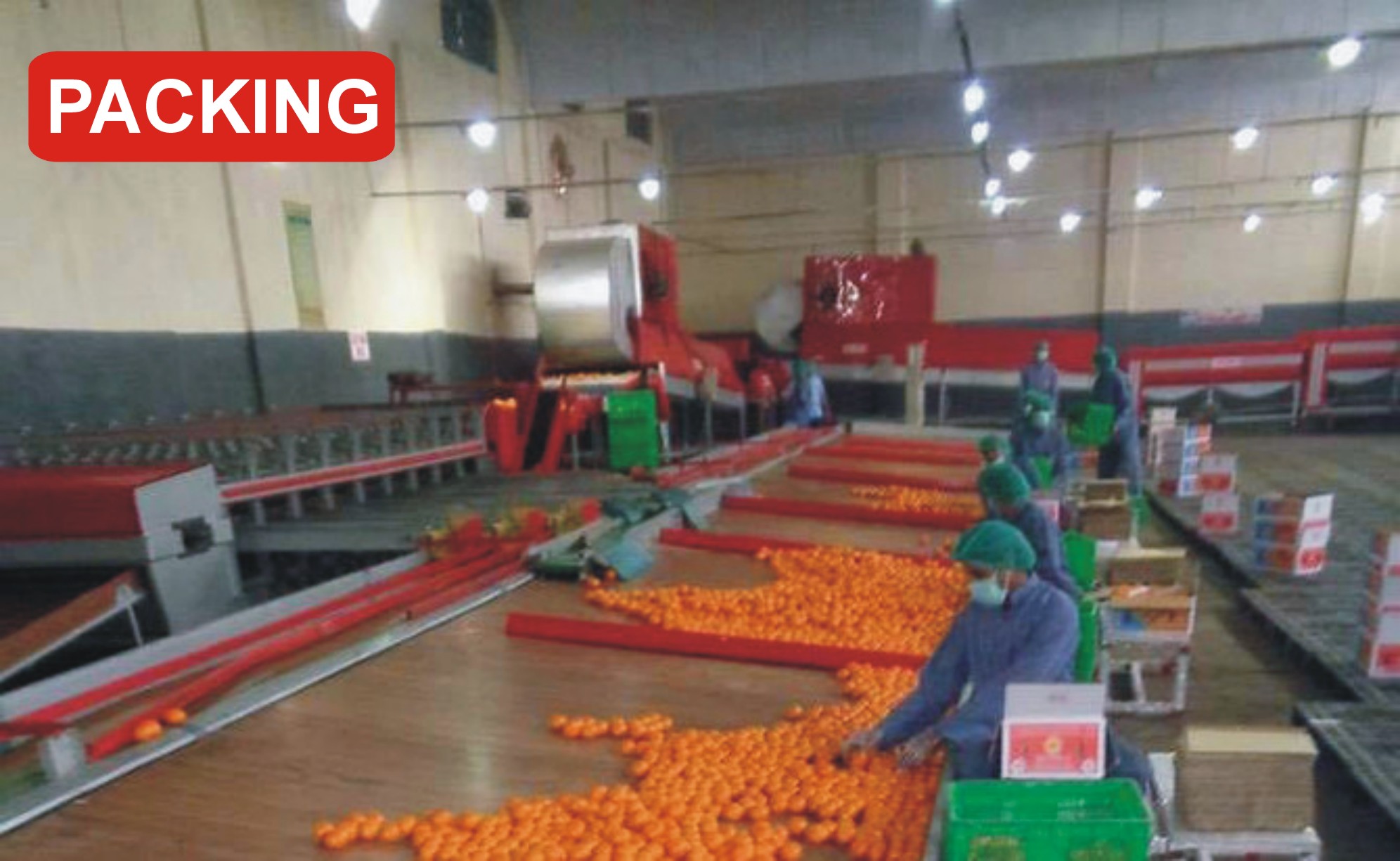
After grading, Kinnow mandarins are carefully packed into appropriate packaging materials such as cartons or crates. Proper cushioning and ventilation are provided to prevent damage during transportation. Proper packaging and storage are crucial to maintaining the freshness, quality, and shelf life of Kinnow mandarins. Here are some guidelines for packaging and storage:
- Cartons or Crates: Kinnow mandarins are typically packed in sturdy, clean, and well-ventilated cartons or crates. These containers should be of high quality to prevent damage to the fruits during transportation.
- Cushioning: To prevent bruising and damage, fruits are often cushioned with soft materials like foam pads or paper shreds within the cartons.
- Sizing: Fruits are sorted and packed according to their size to ensure uniformity within each package.
- Labeling: Each package should be properly labeled with information such as fruit variety, origin, packing date, and any other relevant details.
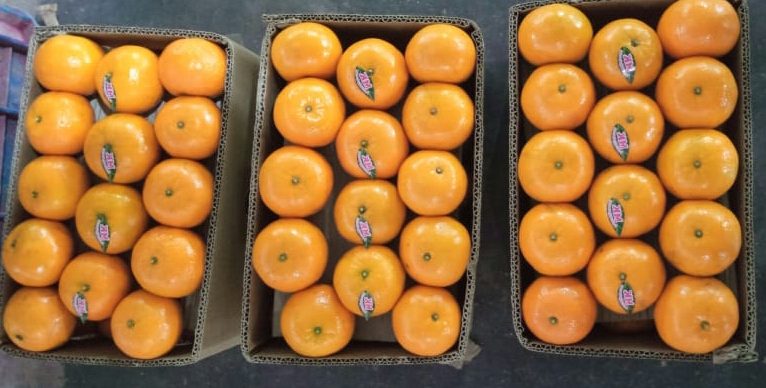
Kinnow Storage
- Temperature: Kinnow mandarins should be stored at the optimal temperature, usually around 4-7°C (39-45°F), which helps to slow down the ripening process and extends their shelf life. Cold storage facilities are equipped with temperature and humidity control systems.
- Humidity:High humidity storage conditions (around 85-90%) help prevent the fruits from drying out. This is particularly important to maintain the juiciness of the mandarins.
- Ventilation: Adequate ventilation is essential to ensure proper air circulation around the fruits. Ventilation helps control the buildup of ethylene gas, which can accelerate the ripening process.
- Ethylene Control: Ethylene is a natural plant hormone that speeds up the ripening of fruits. Ethylene absorbers or filters are sometimes used in storage facilities to control the levels of this gas, thereby extending the shelf life of Kinnow mandarins.
- Avoiding Contamination: Stored fruits should be kept away from other products with strong odors, as fruits can absorb odors easily. Additionally, the storage area should be kept clean and free from pests to prevent contamination.

Quality Control
- Regular quality checks should be conducted during storage. Damaged or spoiled fruits should be removed promptly to prevent the spread of decay to other fruits.
- Temperature and humidity levels in storage should be monitored continuously to ensure they remain within the optimal range.
Transporting Kinnow mandarins from Sargodha to Karachi, Pakistan, and then for international export typically involves careful planning and adherence to international shipping standards. Here are the key aspects to consider for transportation and the international reef container standards:
Transportation Sargodha to Karachi
1.Transportation:
During transportation, Kinnow mandarins should be handled carefully to avoid bruising and damage. Properly ventilated transport containers, such as refrigerated trucks, should be used to maintain the required temperature and humidity levels during transit.
By following these guidelines, growers and distributors can ensure that Kinnow mandarins reach consumers in optimal condition, preserving their taste and quality. Proper packaging, storage, and transportation practices are essential components of the overall post-harvest management process for Kinnow mandarins.
2. Road Transport: Kinnow mandarins are often transported from Sargodha to Karachi via road transport. This journey can take several hours, and it’s crucial to use refrigerated trucks or vans to maintain the desired temperature and humidity levels during transit. These vehicles should be equipped with proper ventilation and refrigeration systems to ensure the fruits remain fresh.
3. Handling: Proper handling procedures should be followed to prevent bruising and damage during loading and unloading. The fruits should be carefully stacked and secured within the transport vehicles to avoid movement and friction during transit.

International Reef Container Standards
When exporting Kinnow mandarins internationally, reefers (refrigerated containers) are commonly used to maintain the required temperature and humidity levels. Here are the international standards for reef container transportation:
1.Reefer Container: The reef container should be of high quality, clean, and well-maintained. It should have an efficient refrigeration system capable of maintaining the desired temperature and humidity levels.
2. Temperature Control: The temperature inside the reefer container should be set within the optimal range for Kinnow mandarins, usually around 4-7°C (39-45°F). It’s essential to monitor and record the temperature throughout the journey to ensure consistency.
3.Humidity Control: The reefer container should be equipped with a humidity control system to maintain high humidity levels (around 85-90%) to prevent the fruits from drying out.
4.Ventilation: Proper ventilation is crucial to ensure uniform air circulation around the fruits. Ventilation openings should be adequately distributed to prevent the buildup of ethylene gas and maintain freshness.
5.Ethylene Control: Some reef containers are equipped with ethylene scrubbers or filters to control the levels of this gas. Ethylene can accelerate the ripening process, so controlling its concentration helps extend the shelf life of the fruits.
6. Monitoring and Data Logging: Modern reef containers often come with advanced monitoring systems that allow real-time tracking of temperature, humidity, and other parameters. Data logging is essential for quality control and ensuring that the fruits meet the import regulations of the destination country.
Exporters should work closely with experienced logistics providers and shipping companies familiar with international standards and regulations. Additionally, consulting with export authorities and agricultural organizations can provide valuable guidance on the specific requirements of the destination country, ensuring a smooth and successful export process.
Customs duty and documentation
requirements for exporting Kinnow mandarins
The customs duty and documentation requirements for exporting Kinnow mandarins from Pakistan can vary based on the specific regulations of the destination country. It’s essential for exporters to comply with both Pakistani export regulations and the import regulations of the destination country. As of my last update in September 2021, here’s a general overview of the customs duty and documentation process:
1. Customs Duty in Pakistan:
– In Pakistan, there might be export duties or taxes applicable to certain products. Exporters should check with the Federal Board of Revenue (FBR) in Pakistan or consult with customs authorities to determine the specific customs duties applicable to Kinnow mandarin exports.
Documentation
1. Export License:
– Exporters might need an export license or permit from the relevant Pakistani authorities to export Kinnow mandarins. The requirements for obtaining an export license can vary based on the nature of the export and destination country.
2. Phytosanitary Certificate:
– A phytosanitary certificate issued by the Plant Protection Department of Pakistan is usually required. This certificate ensures that the exported fruits are free from pests and diseases.
3. Certificate of Origin:
– A certificate of origin, stating that the Kinnow mandarins are of Pakistani origin, is often required. This certificate can be obtained from the chamber of commerce or other relevant authorities in Pakistan.
4. Commercial Invoice:
– A detailed commercial invoice specifying the quantity, value, and description of the exported goods is necessary for customs clearance. The invoice should also include information about the buyer and seller.
5. Packing List:
– A packing list provides detailed information about the packaging of the goods, including the type of packaging, number of cartons, and weight.
6. Bill of Lading or Airway Bill:
– A bill of lading (for sea shipments) or airway bill (for air shipments) is a crucial document issued by the shipping or airline company. It serves as a receipt for the goods and provides details about the shipment.
7. Insurance Certificate (if applicable):
– If the shipment is insured, an insurance certificate should be included in the documentation.
8. Importer’s Requirements:
– Importers in the destination country might have specific requirements and documentation needs. It’s essential for exporters to communicate effectively with the importers to fulfill their requirements.
Exporters should always consult with customs authorities, export promotion agencies, or professional customs brokers to ensure that they have the most up-to-date information regarding customs duties and documentation requirements. Regulations and requirements can change, so staying informed is crucial for a successful export process.
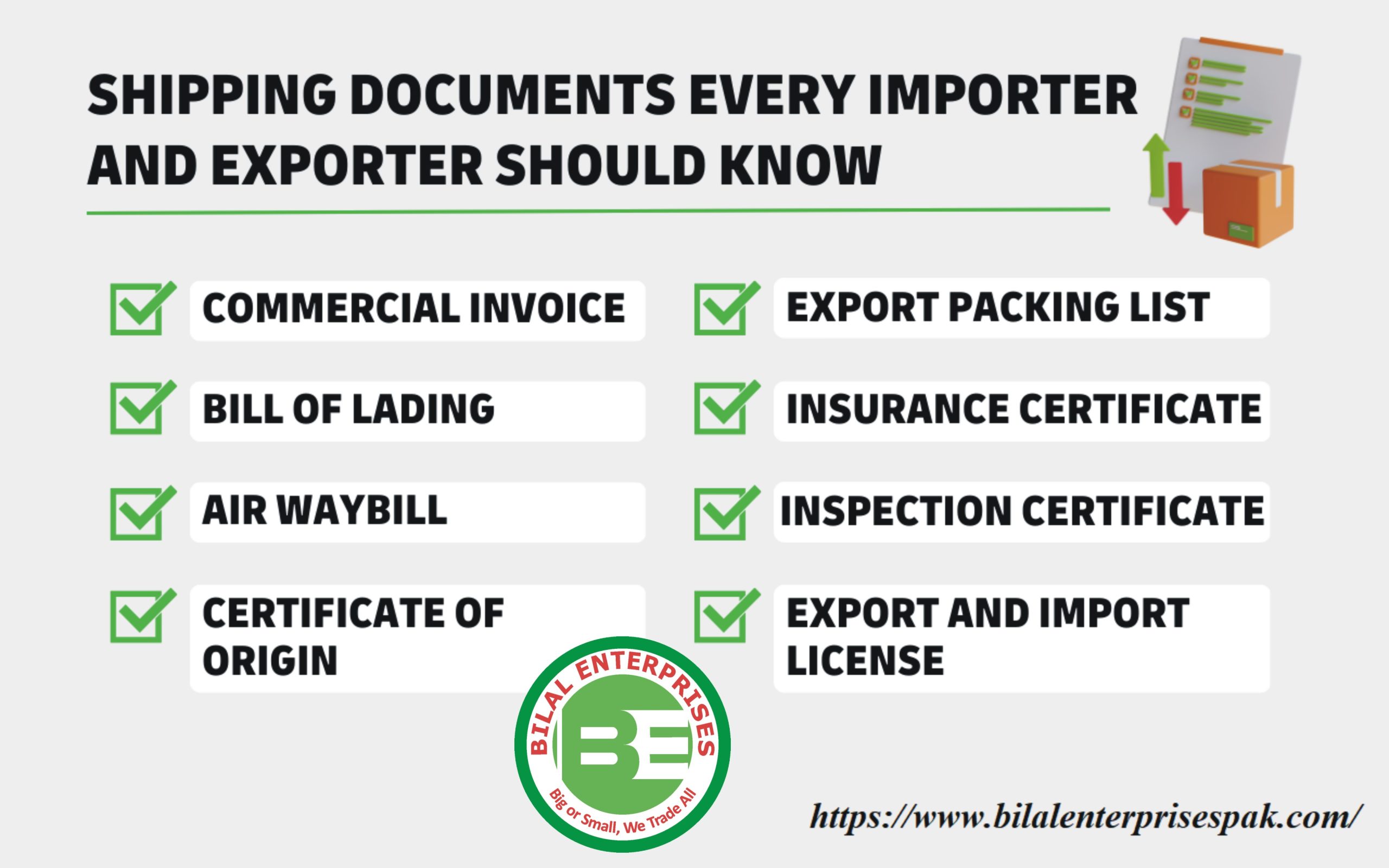
One window solution for Kinnow exporting
It’s great to hear that Bilal Enterprises Pakistan is providing a one-window solution for Kinnow exporting. A one-window solution typically means that a single entity or service provider handles all aspects of the export process, simplifying the procedure for exporters. This can be immensely beneficial, especially for those new to the exporting business or for businesses looking to streamline their operations.
Here are some key advantages of a one-window solution for Kinnow exporting:
1. Convenience: Exporters can enjoy the convenience of having all export-related services, including documentation, customs clearance, transportation, and logistics, handled by a single service provider.
2. Efficiency: A streamlined process can lead to increased efficiency in export operations, reducing the time and effort exporters need to invest in coordinating various tasks.
3. Expertise: Service providers specializing in export services often have expertise and experience in navigating complex export regulations, ensuring that all documentation and procedures comply with the requirements of both the exporting country and the destination market.
4. Reduced Errors: By centralizing the export process, there is less room for miscommunication or errors, leading to smoother transactions and fewer issues during export.
5. Cost-Effectiveness: Utilizing a one-window solution can often be cost-effective, as service providers may offer bundled services at competitive rates, potentially reducing overall export costs.
6. Market Knowledge: Experienced service providers often have knowledge about international markets, helping exporters make informed decisions about market selection, pricing, and other factors crucial for successful exports.
7. Customized Solutions: Service providers can often offer customized solutions tailored to the specific needs of the exporter, ensuring that the export process aligns with the exporter’s business requirements and goals.
It’s important for exporters to thoroughly research and choose a reputable and reliable service provider like Bilal Enterprises. Verifying their credentials, reputation in the industry, and client testimonials can help ensure a smooth and successful partnership. Additionally, clear communication and collaboration between the exporter and the service provider are key to maximizing the benefits of a one-window solution for Kinnow exporting.
Summary
Certainly! In summary, Bilal Enterprises Pakistan offers a convenient one-window solution for Kinnow exporting, streamlining the entire export process. This service simplifies tasks such as documentation, customs clearance, transportation, and logistics. The advantages of this service include increased efficiency, expertise in navigating export regulations, reduced errors, cost-effectiveness, market knowledge, and customized solutions. It is crucial for exporters to choose a reputable and reliable service provider to ensure a smooth and successful exporting experience.

